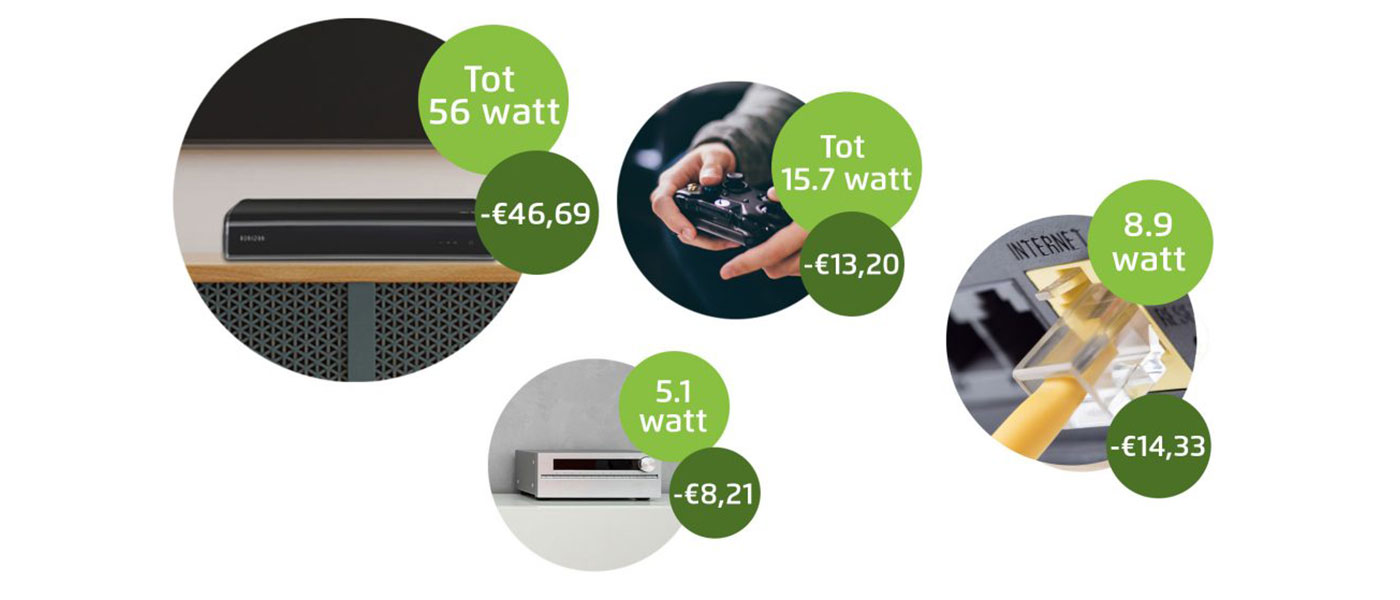Energy consumption is a much-discussed theme, especially with the currently soaring gas and electricity prices. Enpuls, an independent organisation focused on the energy transition, has conducted a study into standby consumption and has found that an average household could easily save some €100 per year. With the current energy prices this would amount to more than €150 on an annual basis. The Trust Smart Home plug starter set came out best of the test in multiple categories.
In its study, Enpuls explains that many devices in the home consume much energy, imperceptibly to consumers, and do not even require this energy all the time. You can save a lot of money by switching off these devices completely (at night for instance) by means of a smart plug. By using smart plugs and a timer on your remote control or control station, you can reduce standby consumption drastically.
The Trust Smart Home (KlikAanKlikUit) starter set, supplemented with two wireless wall switches , comes out best of the Enpuls test in the categories user-friendliness, price level and efficiency. The set is easy to install, and you can switch all devices or a single device on or off at a single press of a button. Place one wireless switch near your bed and one near the front door. When you go to sleep or leave your home, just press the button and everything is switched off. When you wake up or come home, press the button again to switch everything on. In this way, you will recover the purchase costs very soon.
If you want to read the entire Enpuls study (it’s in Dutch), download it here.
What is standby consumption?
Standby consumption is the electricity your devices need when they are in standby mode or when they are not used. These devices, such as television sets, radios and game computers, are not used most of the day but still consume energy. There is a good chance that you have some of them in your home and that they are used for only a couple of hours during the day and not at all during the night. Enough reason to switch off these devices more often.
The Dutch version of this press release can be downloaded in the link below.
